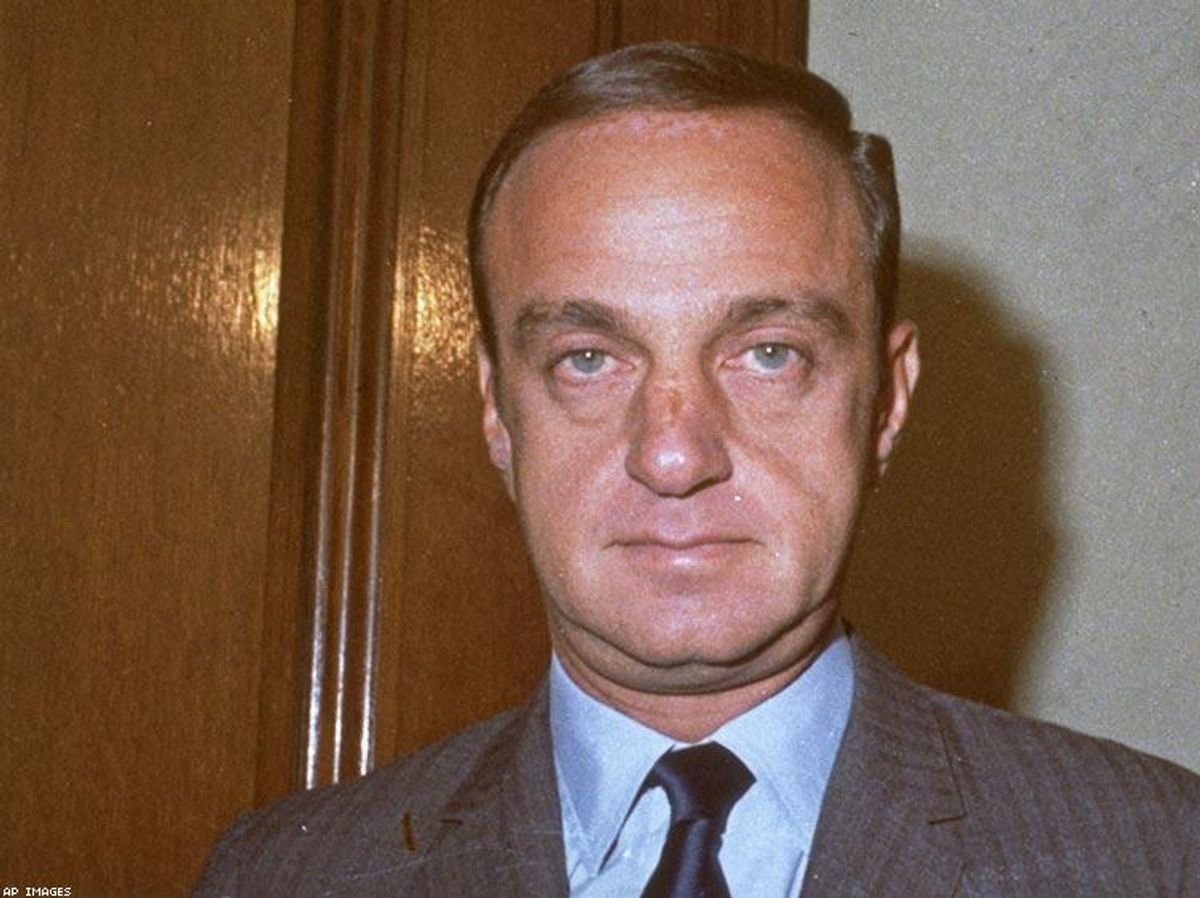Politics
Lessons Learned: Roy Cohn, Trump's Gay Mentor, Shows the Importance of Community

What Roy Cohn's legacy as a communist-hunter can teach us today.
January 18 2017 2:11 AM EST
October 31 2024 6:55 AM EST
yezyes
By continuing to use our site, you agree to our Private Policy and Terms of Use.

What Roy Cohn's legacy as a communist-hunter can teach us today.
This story is part of a series on challenges faced and victories achieved in the fight for LGBT equality. This battle continues, especially with Donald Trump as president, but we won't win unless we learn from the past.
If you were queer in the 1950s and you heard someone say Roy Cohn's name around you, it made you squirm.
Cohn, the homophobic gay lawyer, assisted Sen. Joseph McCarthy in hunting for communists in the U.S. government during the Red Scare and the lesser-known Lavender Scare, when at least 1,000 federal employees lost their jobs because they were gay, lesbian, or suspected to be. Cohn also served as a lawyer and close mentor to President-elect Donald J. Trump.
Cohn "never saw himself as a gay man, even though he engaged in sex with men," Jim Downs, the author of Stand By Me: The Forgotten History of Gay Liberation, tells The Advocate. When Cohn was growing up, in the 1920s and '30s, men having sex with men "were pathologized and criminalized and vilified, so nobody wanted to be 'gay,'" Downs says. Even in the 1970s, when some people began to embrace "gay" as an identity, Cohn was not one of them.
One particular lesson to learn from that, says Downs, is that LGBT identity should be looked at as a "political identity" not just as "who we have sex with." The author drew parellels between Cohn and the gay Republican tech investor Peter Thiel, who is a Trump supporter.
Fears of a purge resurfaced when Tony Perkins, the head of the Family Research Council, which is considered a "hate group" by the progressive Southern Poverty Law Center, wrote a letter to the incoming administration requesting that the State Department cease advocating for LGBT rights and also fire LGBT "activists" in the department.
Cohn helped Sen. Joseph McCarthy, who led the Red Scare against communists during the Cold War, get gays and lesbians fired from their jobs in the federal government by inciting a fear that they were either communists or susceptible to blackmail by foreign governments. Secretary of State John Kerry recently issued a formal apology on behalf of the State Department for all the people who lost their jobs during McCarthy's queer witch hunt.
The difference between the Cold War era and today is that back then most LGBT people were in the closet, so Cohn and McCarthy used this to their advantage. "They saw them hiding in the closet and they said, 'See how they can so secretly assume another identity as a straight person?'" Downs says. This then made it possible for them to jump to another conclusion, he says: "Well, they could secretly assume an identity as a communist."
David K. Johnson, the author of The Lavender Scare: The Cold War Persecution of Gays and Lesbians in the Federal Government and associate professor at the University of South Florida, also points out differences between the 1950s and today. "Homophobes like Tony Perkins can no longer attack people for being gay, but they can try to contain what they see as LGBT activism," he tells The Advocate. "And that could have devastating consequences for LGBTQ people around the world."
Despite fear of these consequences, Johnson says,"It is also important to remember how far we have come."
"The State Department has progressed from a center of homophobia during the Cold War to one of the greatest advocates for LGBTQ civil rights around the world under Secretaries [Hillary] Clinton and Kerry," he says.
This fear many LGBT people have is valid, says Downs, because "gay rights are fragile." He's not so confident in the triumphant narrative of "things get better." "They don't just get better; they can turn for the worse," he says.
This shows the importance of being in community with other LGBT people, says Downs, because "when they come for you, what you are going to show? You have to have a community." A sense of queer community is something Cohn never had.